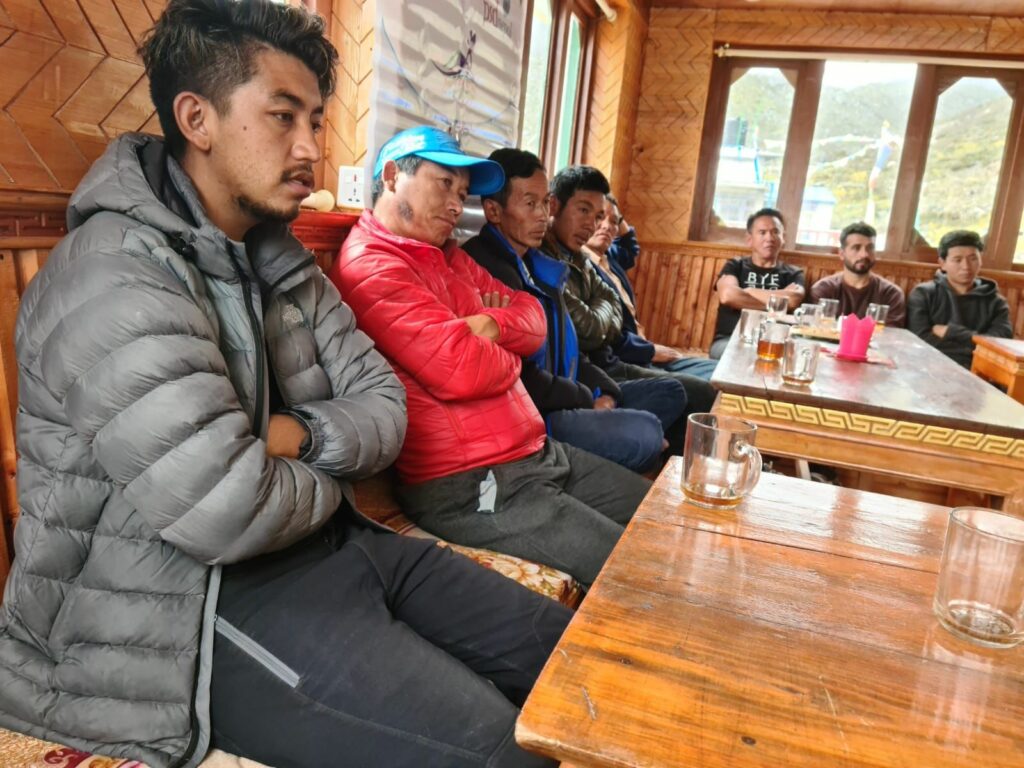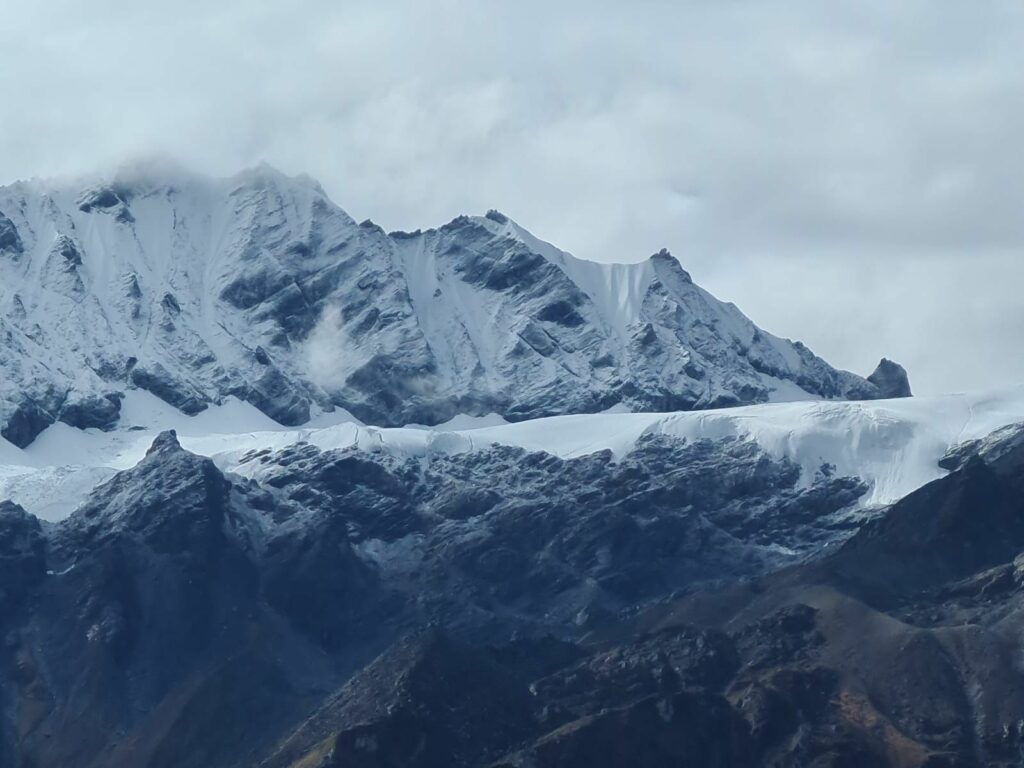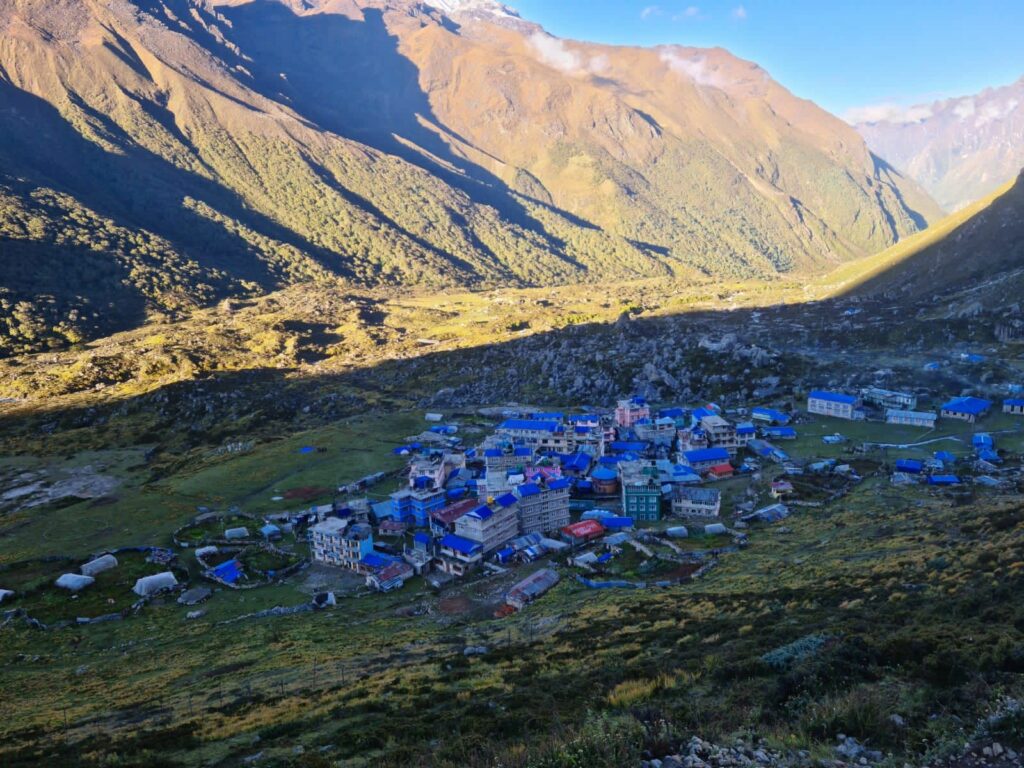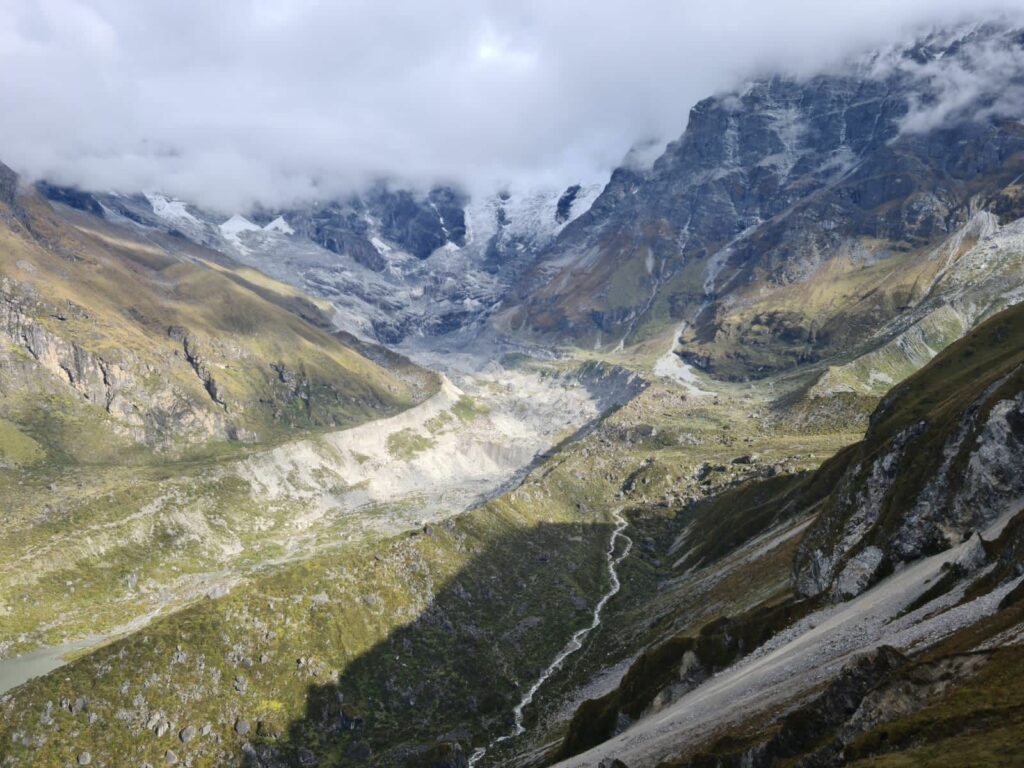Written by Bishnu Bhatta, director of PSD Nepal
Plastic Project in Langtang Region: 4Cs that Protects the Mountains
1. Current Situation and Proposed Module
Human encroachment on nature has caused air pollution, water pollution, soil erosion, melting mountains and reduced agriculture productivity. More importantly, it has now dramatically changed the inhabitation of the animals and microorganisms. The changing climate has started not only impacting nature and animals but to human health. In the year 2022, Nepal has experienced the spread of Dengue fever in the mountain region. The health care system, training and supply chain are not designed to prevent and cure Dengue fever. We got the clear message that Climate change is now more visibly impacting nature, animals, and humans. Thus, the air, water, soil, and trees need to be protected from so-called ‘human behavior’. The Plastic project is a powerful initiative that aims to contribute to reducing the effect of climate change on nature, animals, and human beings. We have identified ‘4Cs’ that can help reduce the climate change effect in the mountain region.
We need to understand that the functional coordination between community, councils/local government, corporate sectors, and customer/visitors would help in managing the waste in the mountain region.
2. Places Visited
Group of three experts visited various project sites and reached Kenjing which is a basecamp for Langtang Mountain. The team visited Dhunche district health office and shared about the project activities. Health professionals including public health, paramedics and nurses have participated in the discussion. We have highlighted the importance of hospital waste management. Simply burning the hospital related waste is not a solution but ultimately contributes to polluting the air. There we need to create an awareness and secure the commitment to segregate the waste, provide municipal waste to concerned authorities and follow the waste disposal procedures for the medical waste.
3. Main Results (4Cs that Protects the Mountains)
The group of experts has organized a mass meeting among community leaders, social workers, workers, and business representatives. A total of 15 people were gathered in the meeting. We have also invited visitors to share their views on the importance of waste management in protecting nature, animals, and human beings. The team has taken a special session on the effect of poor waste management in mountains. The role of 4Cs in
The participants have agreed to form an informal group of above-mentioned clusters to work on the ‘mountain waste management.
- The 4cs have unanimously agreed that collective actions need to be made to gain the sustainable benefit through the proper management of mountain waste.
- Local government has shown its commitment to generate local revenue to support the initiative led by NGO/international support organizations and the community.
- Group has discussed the importance of a ‘smart landfill site’ to manage the waste.
- Group also agreed on the need to place waste collection bins in major villages and resting places.
- Group has demanded the awareness and training for the experts to the community, business sectors, schools, and health centers.
4. Conclusion
Local communities, hotel owners, social workers, teachers, and health workers are now fully committed to mountain waste management. Plastic is considered as a center of waste management. Community mobilization, training, awareness, support from international communities and ownership of local government are the crucial factors to make the initiative a successful module. A three-monthly progress review would help in refining the ‘Langtang Waste Management module’. The 4Cs that protect the mountain. We have been doing this project in partnership with Atmosfair – Germany and would like to thank all Atmosfair for generously supporting us








